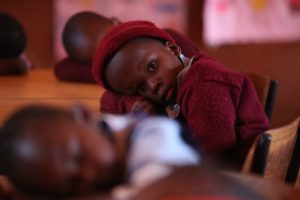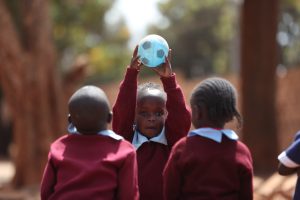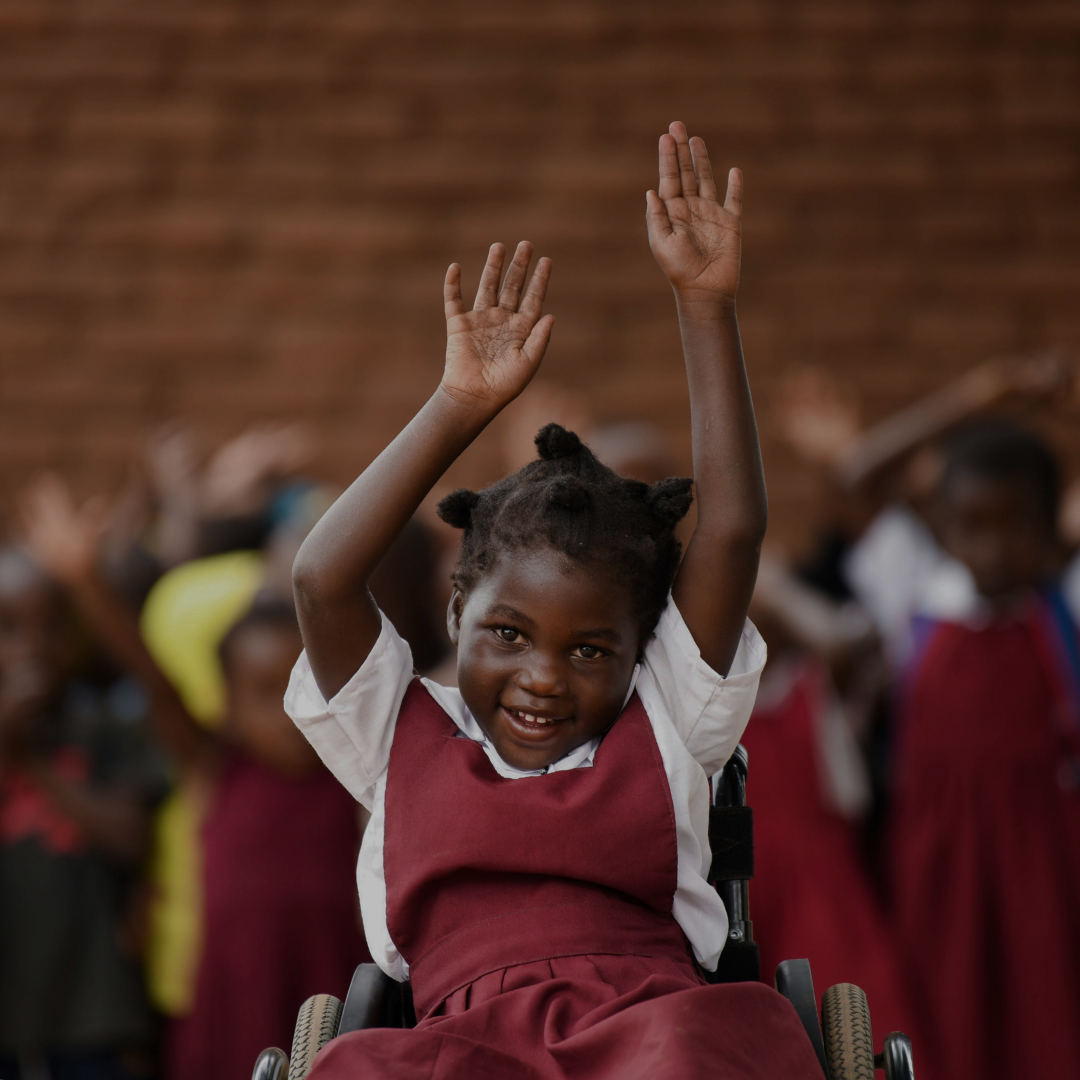When Mumbi went into labour she rushed to the nearby hospital.
There she gave birth to Zawadi. She had been born prematurely, so Zawadi was placed in an incubator for the first two weeks of her life.
Zawadi was one month old when another mum asked Mumbi if her baby was well. Mumbi said, ‘Yes,’ but the woman insisted she ask the doctor to do more observations; she suspected she could have hydrocephalus. Mumbi told the doctor about her new concerns, so Zawadi underwent some tests before Mumbi received the confirmation that her daughter did indeed have hydrocephalus.
This was a turning point in the lives of both Mumbi and Zawadi because it meant more hospital visits for surgery and check-ups, and trying to understand what this meant for Zawadi’s future. Thankfully, Zawadi’s second surgery was successful and from then on, though she grew up with delayed milestones, her health remained stable.
But with scarce financial resources, times became very difficult for Mumbi and her family. She also started facing hostility from her husband and his relatives – some of whom accused her of causing the child’s illness.
When Zawadi turned four, it was time for her to start school.
But this presented another hurdle for Mumbi as her daughter would need adjustments at school that many schools could not provide. The family’s own financial constraints meant Zawadi was in and out of school – parents are required to pay admission fees and purchase stationery for their children even in public (state) schools.
When Mumbi and her family moved house, a new neighbour mentioned a Parent Support Group that was formed by Able Child Africa in partnership with Action Network for the Disabled (ANDY).
Mumbi started attending their meetings immediately, and at one of those meetings she was referred to a school that is inclusive to children with disabilities because of its involvement in the project. Some of the activities that ANDY has facilitated at the school to make it more inclusive for children like Zawadi include teacher trainings, inclusive play programme sessions and Childs Rights Clubs.
After her induction and attending more meetings, Mumbi found assistance not only for her children to join school but also psycho-social support to cope with stigma and discrimination.
Zawadi and her 4-year-old brother, who also lives with disability, were enrolled in an early childhood education (ECE) class at the primary schoolis part of the project in the area. Though Zawadi is older than most children in her class, she’s doing well and enjoys it. She loves to sing and plays happily with her brother and other children at the school.
Part of the project’s approach is to equip parents to support their children with disabilities to access early childhood development services. Mumbi also joined the support group’s financial empowerment scheme, which offers soft revolving loans to the women. She is now running a small business producing homemade detergents, which she sells in her neighbourhood and beyond.









